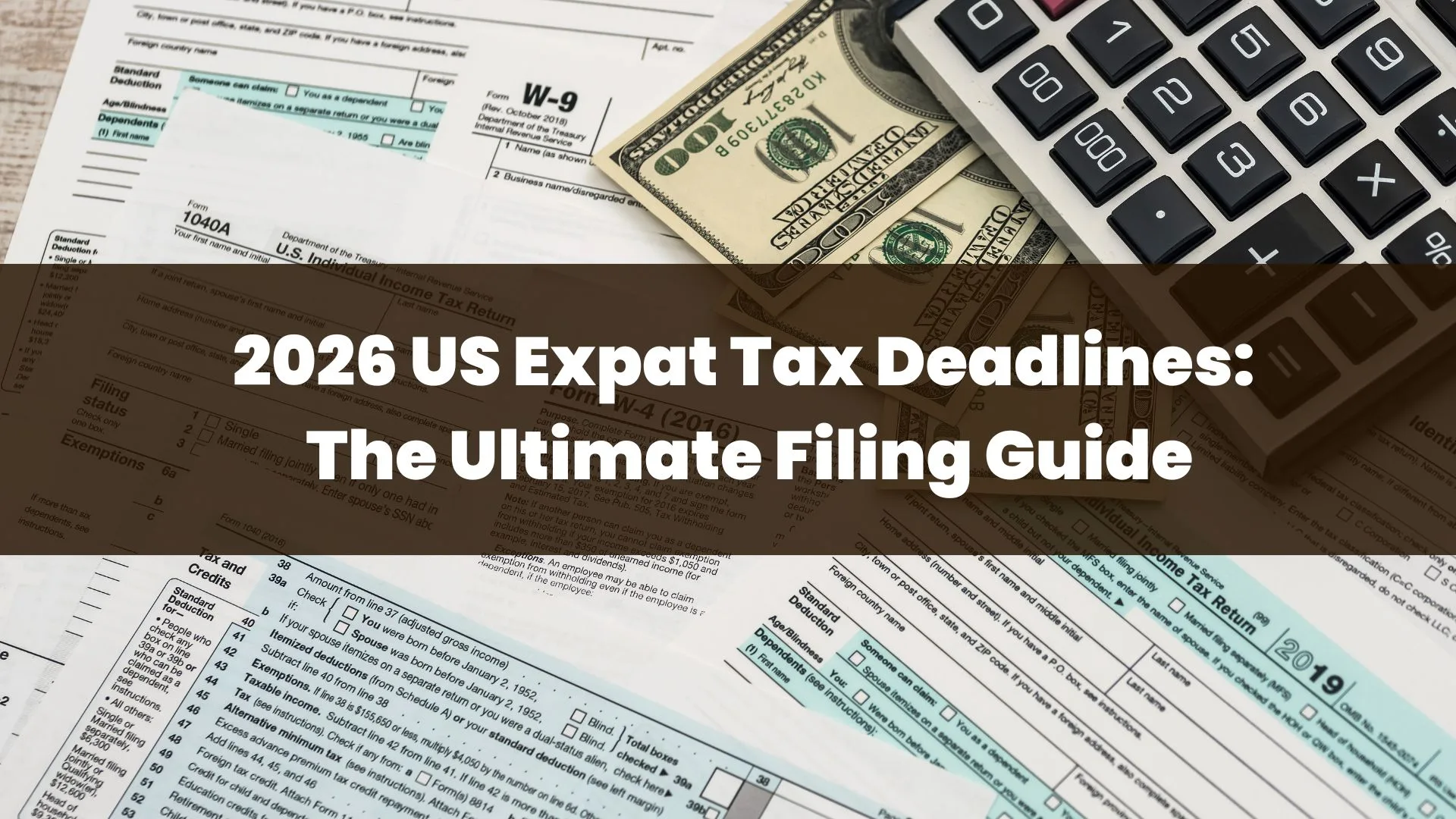
We Make Tax Filing A Breeze
Home » US Expats: June 15th Tax Extension & What to Do Next

For many US citizens and residents living abroad, the standard April 15th tax filing deadline can be a source of confusion. The good news is that the IRS provides an automatic extension for those “out of the country,” pushing their initial individual income tax filing deadline to June 15th. With this date approaching, it’s crucial to understand what this extension means, how to secure further extensions if needed, and what critical tax considerations remain.
At TheTaxBooks, we specialize in simplifying complex US tax and business incorporation matters for our international audience. Led by Principal Consultant Kishore Chennu, an MBA, CMA, and EA-IRS (US) with over 15 years of US tax experience, we provide clear, authoritative guidance to ensure our clients remain compliant and confident in their US tax obligations.
The IRS recognizes the unique challenges faced by US citizens and resident aliens living outside the United States. To alleviate some of this burden, an automatic two-month extension is granted for filing federal income tax returns. This moves the typical April 15th deadline to June 15th.
You are generally granted this automatic two-month extension if, on the regular due date of your tax return (April 15th for calendar year filers), you are:
To utilize this automatic extension, you should attach a statement to your tax return explaining which of the above situations applies to you.
The IRS defines “out of the country” for this extension as:
Even if you are physically present in the United States or Puerto Rico on the regular due date, you can still qualify if you meet the “out of the country” criteria.
While the automatic June 15th extension provides some breathing room, many US expats find they need even more time to gather necessary documents, reconcile foreign financial information, or navigate complex tax scenarios. This is where IRS Form 4868, “Application for Automatic Extension of Time To File U.S. Individual Income Tax Return,” comes into play.
If you need more time beyond the automatic June 15th extension, you can file Form 4868 by the June 15th deadline. This form grants an additional four-month extension, pushing your filing deadline to October 15th for calendar year taxpayers. This means you can effectively have a total of six months from the original April 15th deadline.
Filing Form 4868 is generally straightforward and does not require you to provide a reason for the extension. You’ll need to provide your basic identifying information and an estimate of your total tax liability for the year.
This is a critical point that often leads to misunderstandings and potential penalties. While filing Form 4868 (or qualifying for the automatic June 15th extension) grants you more time to file your tax return, it does not extend the time to pay any taxes you owe.
Any taxes you owe are still due by the original April 15th deadline. Even with the automatic June 15th extension for expats, interest will be charged on any tax not paid by the original April 15th due date. If you anticipate owing tax, it is highly advisable to estimate your tax liability and make a payment by April 15th to avoid interest and potential penalties.
Filing as a US expat can be intricate, and requesting an extension brings specific points to mind:
If you expect to owe US taxes, it’s essential to make an accurate estimate of your tax liability and pay as much as you can by the April 15th due date (or June 15th if you qualify for the automatic extension and are paying by then to avoid the failure-to-pay penalty). The IRS assesses interest on underpayments and may also levy a “failure-to-pay” penalty if you don’t pay at least 90% of your tax liability by the original due date. Even if you’re filing an extension, proactive payment is key.
Many US expats reduce or eliminate their US tax liability by claiming the Foreign Earned Income Exclusion (FEIE) or the Foreign Tax Credit (FTC). These provisions can significantly impact your final tax bill. An extension allows you more time to ensure you meet the eligibility criteria for these benefits, such as the Bona Fide Residence Test or the Physical Presence Test for the FEIE.
Beyond income tax returns, US expats often have additional reporting obligations related to foreign financial accounts.
Understanding and complying with US tax laws as an expat can be overwhelming, especially when navigating extensions, international income, and foreign asset reporting. This is precisely where the expertise of TheTaxBooks becomes invaluable.
Our team, led by Kishore Chennu, offers comprehensive services tailored to the needs of US citizens and residents abroad, including:
We help you correctly estimate your tax liability, manage payment obligations, and file all necessary forms accurately and on time, even with extensions. Our goal is to provide clear, reliable advice, taking the stress out of your US tax obligations.
The June 15th deadline for US expats is an important milestone. While it provides an automatic extension for filing, it’s crucial to understand that tax payments are still ideally due by April 15th to avoid interest and penalties. If you require further time to file, Form 4868 is your key to an additional extension until October 15th.
Don’t let the complexities of international tax rules lead to compliance issues. Proactive planning and seeking expert guidance are essential.
To learn more about how you can reduce your taxes and save money, check out the helpful resources on our blog or contact us today to schedule a consultation.